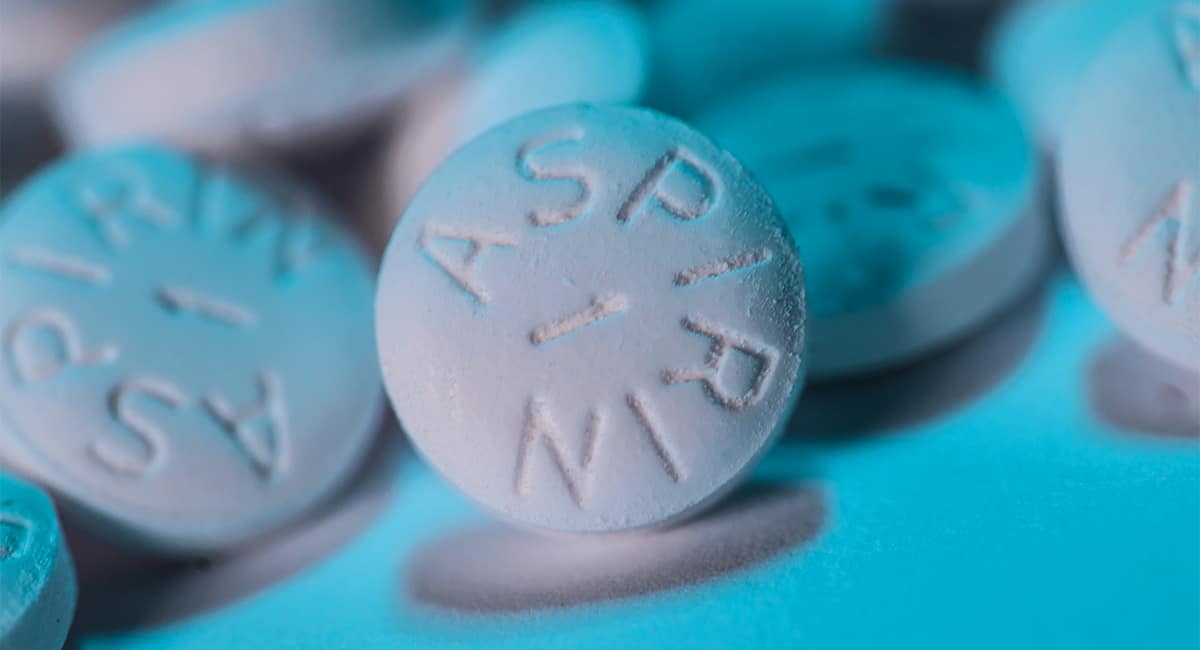
Aspirin is commonly used as a painkiller and anti-inflammatory medication and can help to reduce the risk of heart attack in some cases. There’s debate, however, about whether first aiders should administer aspirin to suspected heart attack patients.
What is aspirin?

Aspirin is an everyday painkiller effective on ailments like toothaches, headaches, period pain and muscular injuries. It can also be used for cold and flu symptoms or to lower a high temperature. It comes in tablets or suppositories and is available from most shops, supermarkets and pharmacies.
If you’ve had a heart attack or stroke, your doctor may recommend a low dose of aspirin daily to reduce the risk of it happening again.
How does aspirin work?
Aspirin works by blocking the enzyme that causes blood platelets to stick together, thereby reducing the formation of blood clots and the inflammation of injuries like sprains and strains. While aspirin was once commonly used as an anti-inflammatory drug and painkiller, a much higher dose is needed to reduce pain and inflammation than is to lower the risk of blood clots – that’s why drugs like ibuprofen are now used more often for this purpose.
Should aspirin be used for heart attack victims?
Guidance from the British Heart Foundation, Resuscitation Council and the Health and Safety Executive (HSE) all state that aspirin can be given in the event of a suspected heart attack.
According to the British Heart Foundation, aspirin can be given if it’s on hand and an ambulance is already on route – you shouldn’t go looking for it. While the HSE states that the administration of medication by a first aider isn’t recommended, first aiders can still assist a casualty in taking aspirin in the event of a heart attack.
Your company policy may state that administering medication is not permitted by first aiders. This rule should not include the use of aspirin, but we recommend you check with your responsible persons to be sure.
How to administer aspirin for a heart attack
If you think someone is having a heart attack, the most important thing to do is call an ambulance immediately. If you’ve called an ambulance and you have aspirin to hand, assist the casualty in taking 300mg of aspirin (this is the typical dosage of one aspirin tablet). Advise the casualty to chew the tablet rather than swallowing it, as this accelerates the absorption of aspirin into the blood.
You can learn these lifesaving skills and more on our First Aid at Work Course and our Emergency First Aid at Work Course.
Read our other blogs for more information on first aid or contact us for further advice and information on our courses.
About the author:
Jo Stokes is a writer, marketer and trained first aider at Safety First Aid.
